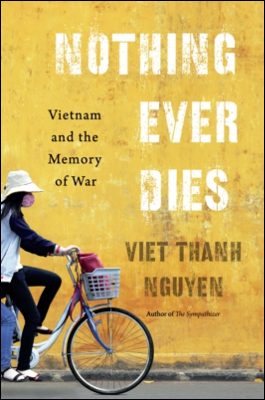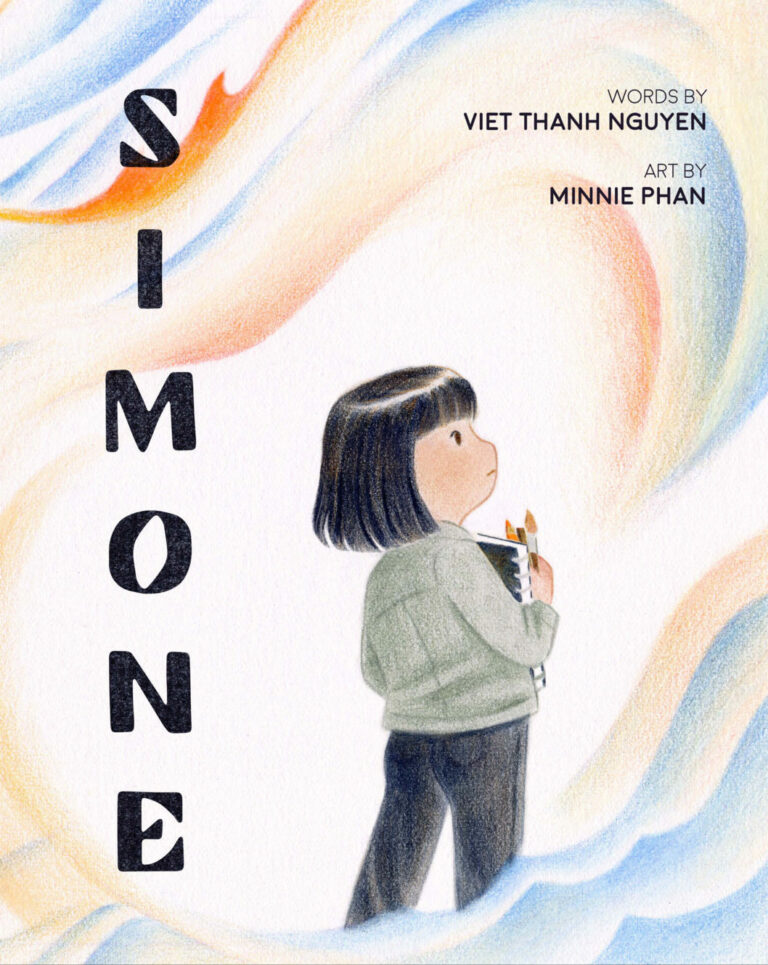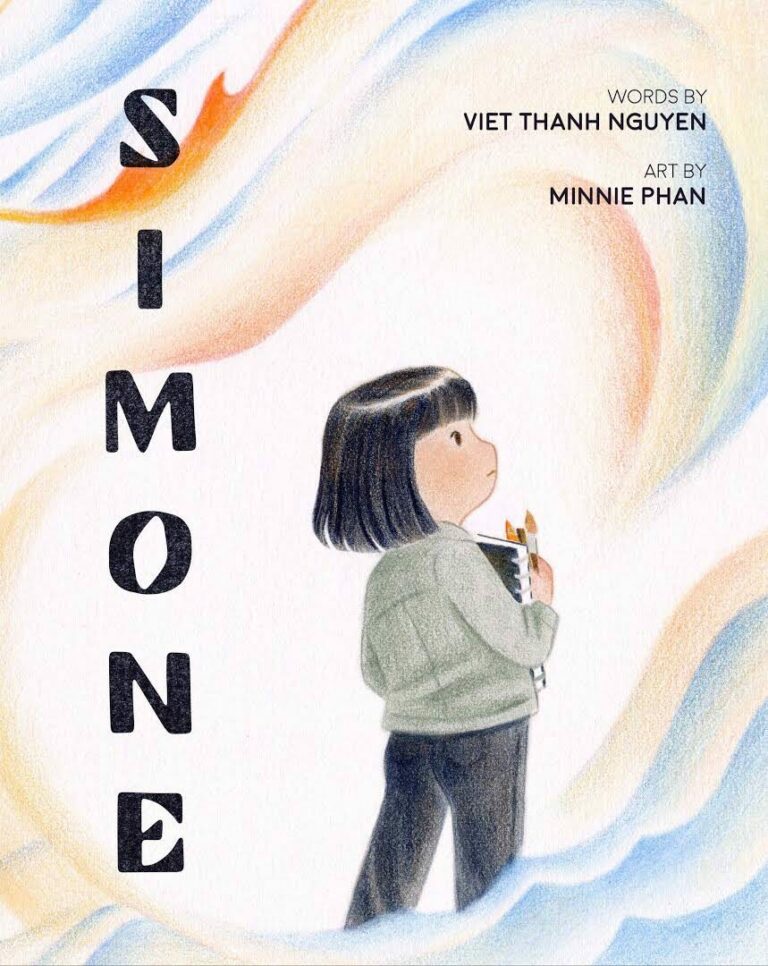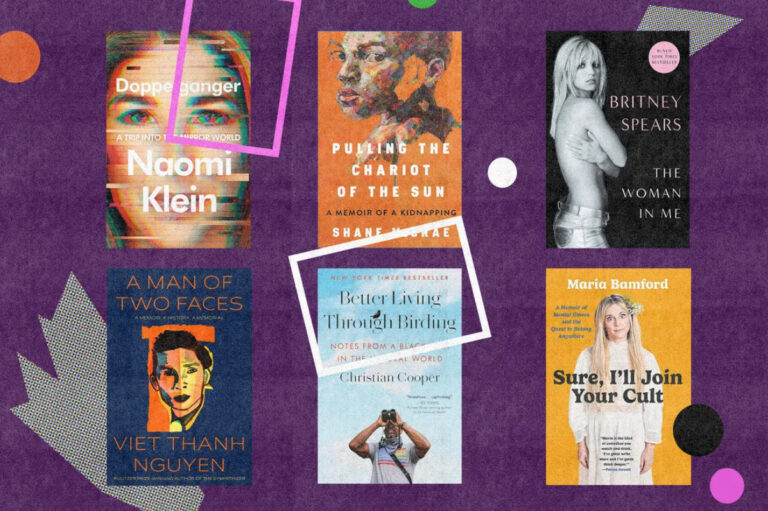Bill Schwab reviews Viet Thanh Nguyen’s “Nothing Ever Dies: Vietnam and the Memory of War”. Originally published by The Missourian.

“All wars are fought twice,” writes Viet Thanh Nguyen. “The first time on the battlefield, the second time in memory.”
Born in Vietnam in 1971 and raised in San Jose, Nguyen began testing this hypothesis in his Pulitzer prize-winning novel “The Sympathizer,” and further pursues it in his first nonfiction book, “Nothing Ever Dies.”
Nguyen’s penetrating probing of the Vietnam War—or, as those on the other side call it, the American war – discusses how warmongers are both human and inhuman. He looks at the issues underlying war and thoroughly examines the false notion that sides have to be taken, even after warfare has ceased.
“In the U.S.,” Nguyen says, “we lost the war in fact, but won the war in memory.”
Nguyen looks at the war and its memories through the unique lenses of film, literature and art. His title is taken from Toni Morrison’s “The Beloved.” He skillfully scrutinizes our distorted memories and shatters our myopic recollections. He avers that our memories have been shaped by stereotyped visuals such as seen in Coppola’s film “Apocalypse Now” and in photographs such as “Phan Thi Kim Phuc” the naked, napalmed girl in Nick Ut’s 1972 photograph.
In his critique of war the author leads readers to confront the implications of their own dark participation. He illustrates the kAmerican public’s complicity in the Viet Nam War by asserting that “everyone should know one simple statistic: the Washington DC memorial to the American war dead is 150 yards long; if a similar monument would be built with the same density of names of the Vietnamese war dead in it, [it] would be 9 miles long.”
Nguyen challenges readers to resist the temptations of amnesia, nostalgia and simplified descriptions of the causes of war. Instead, he encourages readers to confront the facts, to talk about war with others and to articulate uncomfortable truths about our common history. He pulls no punches on the ways genocide is commemorated through public monuments and sites.
“Typically, we put a huge amount of effort into memorial spaces where we can gather, like Washington DC. It’s important to do that, but there are so many places where terrible things have happened and have not been memorialized. One small step toward addressing the past is to acknowledge how, for example, with the history of slavery, the legacies of the past have left material inequities in the present.”
Those willing to risk taking a hard look at themselves and their potential for malevolent thoughts and actions will find a lot to learn from Nguyen. He leads the reader to reach a “complex ethics of memory, a just memory.”
This is an eloquent, scholarly, descriptive account of a very prickly and complex series of events in American history. Nguyen’s examination of the Vietnam War’s psychological impact on combatants and civilians is stunning. I found coming to grips with the memory of this war through the works of art it generated a helpful way to reflect on it. The author draws on a host of artists who represent both sides of the trenches. Nguyen’s evenhanded approach is refreshing, enriching, and cause for personal soul-searching: As a reader I was forced to examine my own contribution to warfare. The subject matter also made me want to separate myself from the uber nationalistic attitude so popular in the United States today. “Nothing Ever Dies” was one of the top contenders for the best nonfiction book of 2016 on several awards lists. It is a difficult, but rewarding read.
Viet Thanh Nguyen is Associate Professor of English and American Studies and Ethnicity at the University of Southern California. Harvard University Press is the publisher of this well indexed and cited 374-page book.


